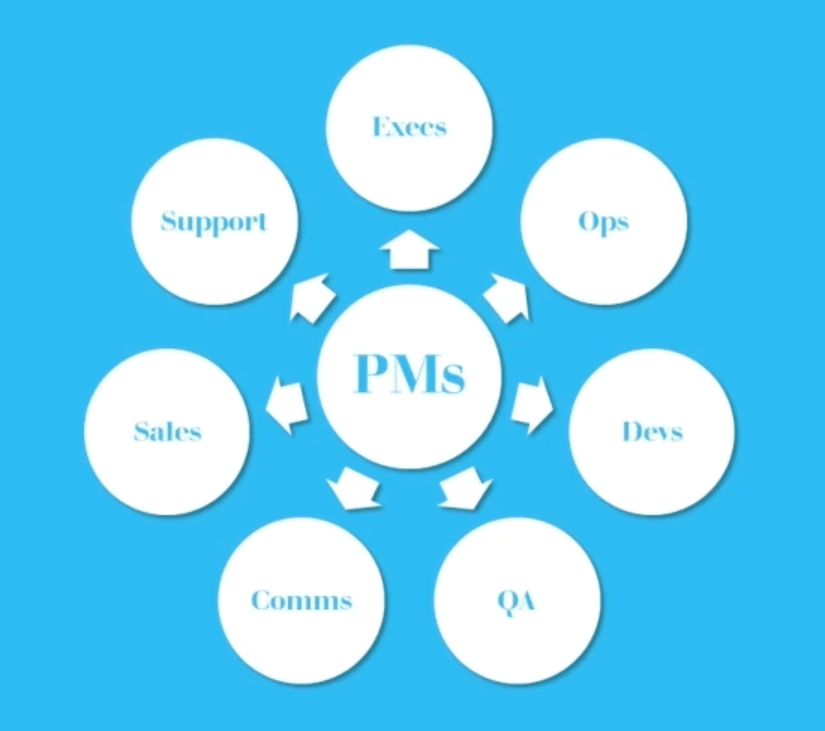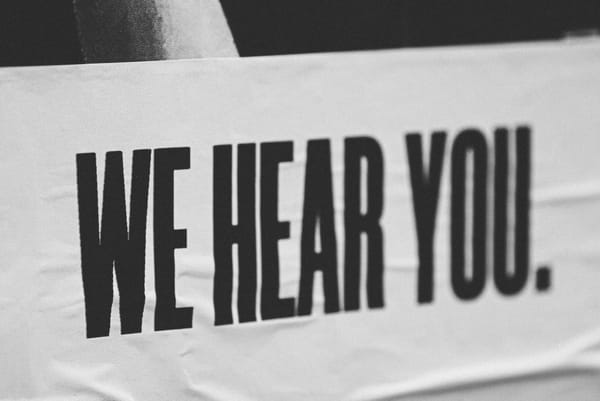Jordan Thistlewood, Former Product Management Director at Epic Games and Foundry, gave this presentation at the Product-Led Summit London in 2023.
I’m here to talk about empathy in product management. Empathy is a key toolset within the product organization and your key to unlocking relationships within the larger company.
- Empathy leads to strong teams
- Empathy equals success in cross-functional leadership
- Empathy in process
- Invest in your teams
- Get to know your peers
- Be responsible to others
- Celebrate the victories
- Make it personal
Empathy leads to strong teams
Empathy is defined as the ability to take on another's perspective, to understand, feel, and possibly share and respond to their experience.
I think we can all agree that the world needs a lot more empathy, but it's also very key to successful product organizations.
I’m going to tell you a story.
When I was about my son's age, and I was thinking about university, my dad and I went for a walk as we normally would, and he said, “We should talk about university. I’ll pay for a bachelor's degree on one condition - you don't end up in med school.”
You’ve got to understand that my father had been a doctor for 30-40 years at this point, and I was quite confused because I’d never expressed an interest in going to med school, so I didn't really know where this was coming from.
He went on to explain, “Look, you’re a great people person, and you care about people. You’d make a fantastic doctor. But with the way you study, med school will chew you up and spit you out.”
I took him at face value, and I changed my major from business to a bachelor’s in Fine Arts and Set and Lighting Design.
And funny enough, when I told him what my choices were, his face basically said, That backfired.
But what I did learn from my dad, through the time he invested in his patients, the extra hours he spent calling them to prep them for surgeries, and the checkups on them afterward, was that empathy leads to compassion, and that improves everything.
So, what I learned and applied throughout my career was that empathy leads to strong teams.
Could we not take the passion, focus, and empathy that we put into customer-centric design and put it into team-focused attitudes?
Take that same effort and put it into how you operate within the company as a product organization and as a product leader.
That means operating in a way where you’re embracing others, their problems, their challenges, and their aspirations.
After all, products are made, marketed, sold, and supported by people, for people. And these are people that have their own career aspirations, their own pressures, and their own family concerns. There's a whole lot that goes into everybody that we work with every day. It's not just about the function that they fit in within a company, it's the whole thing that they bring to the company every day.
Empathy equals success in cross-functional leadership
As product managers, we’re part of a larger organization, but we’re also part of a hub group. You are the center of it all.
You're taking all the inputs from all the various teams, you're bringing them information, and you're working across that whole organization.

You’re a cross-functional leader, and if you’re someone who’s mentoring or leading other product managers, your key job is to build new cross-functional leaders.
If you’re a product manager and an individual contributor, your job is to make sure you’re one of the best cross-functional leaders in your organization. That’s how you move mountains. That’s how you launch new products. That’s how you succeed as a product manager.
There's one undeniable fact: we all have total reliance on others to accomplish what we need to do.
If you’re a super-talented product manager, designer, coder, and creative, you can launch your own app. It's not impossible. But at scale, you need everybody else.
This embraces the fact that, ‘Their success is your success.’ And this is the fundamental middle part of everything around empathy in product management.
Empathy in process
Now, I want to dig into empathy and process. There are templates, deadlines, briefs, handoffs, and all these things that go between these groups, and sometimes they come out as something a little bit more confrontational. For example, “I need it by x date. Otherwise, I'm not going to do it for you.”
If you break it down, what is that process? What are those templates? What do those deadlines really mean?
“Please give me enough time to do a good job. Please give me all the information I possibly need to do a good job. Please tell me exactly what you're looking for so I can successfully deliver for you.”
Within a whole process, empathy is at the core. So, I encourage everybody to look at their processes and decide if there’s enough. Do people understand where it all comes from?
To give you one example, working with marketing and PR at the companies I've been at, you see it as specialized software. There's subject matter expertise that's involved. Everybody was a very talented marketer at these companies, but the briefs weren't enough for them to understand. We were trying to lift mountains with some of these products in terms of their market exposure, growth, and private equity goals.
So, it was about putting in the time to run workshops and take marketing people with us to visit clients to make it very real. If you’re a subject matter expert for your product, take some time to scoop out part of your brain and make sure that those teams are empowered. You’ll always get better results, and you’ll build relationships that will take you through many more with the team.




 Follow us on LinkedIn
Follow us on LinkedIn




